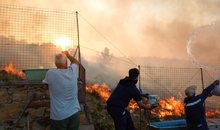
 Flash News
Flash News
Abuse of tenders and falsification of documents, GJKKO gives sentences to 4 former officials (NAMES)
A 70-year-old man is found dead in the Buna River
A dead body is found in the Shkumbin River
Accident in Prrenjas, car hits and kills pedestrian
Murder of Elton Javori, Fier Prosecution sends two brothers Agim and Kreshnik Gashi to trial
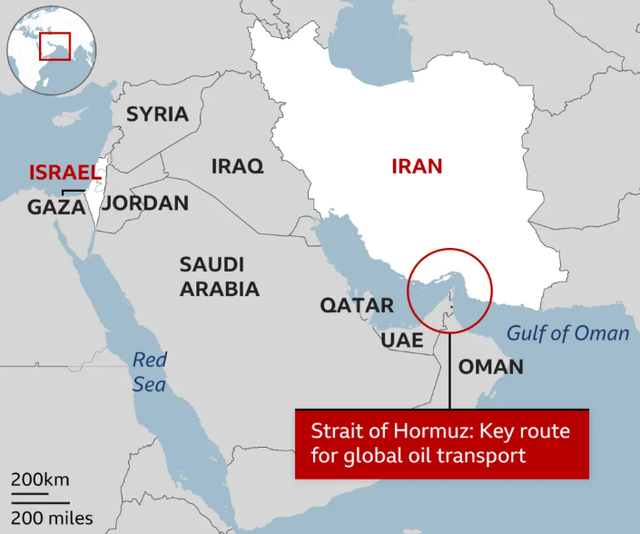
There is considerable speculation that Iran could retaliate for US attacks on its nuclear facilities by closing the world's busiest oil shipping channel, the Strait of Hormuz.
About 20% of global oil and gas flows through this narrow shipping lane in the Persian Gulf. Blocking it would have profound consequences for the global economy, disrupting international trade and driving up oil prices.
It could also raise the cost of goods and services worldwide and hit some of the world's largest economies, including China, India and Japan, which are among the top importers of crude oil passing through the strait.
What is the Strait of Hormuz - and where is it located?
The Strait of Hormuz is one of the most important shipping routes in the world and the most important oil transit point.
Bordered to the north by Iran and to the south by Oman and the United Arab Emirates (UAE), the corridor – which is only about 50 km wide at the entrance and exit, and about 33 km wide at its narrowest point – connects the Gulf with the Arabian Sea.
The strait is deep enough for the world's largest crude oil tankers and is used by major oil and gas producers in the Middle East - and their customers.
In the first half of 2023, about 20 million barrels of oil passed through the Strait of Hormuz per day, according to estimates from the US Energy Information Administration (EIA) - that's nearly $600 billion in energy trade per year.
This oil comes not only from Iran, but also from other Gulf states such as Iraq, Kuwait, Qatar, Saudi Arabia and the United Arab Emirates.
What would be the impact of closing the strait?
The former head of the UK's MI6 intelligence agency, Sir Alex Younger, told the BBC that his worst-case scenario in the ongoing Iran-Israel conflict involved a blockade of the Strait of Hormuz.
"Closing the strait would obviously be an enormous economic problem given the effect it would have on the price of oil ," he said.
It would be "uncharted territory," according to Bader Al-Saif, an assistant professor at Kuwait University specializing in the geopolitics of the Arabian Peninsula.
"There would be direct consequences on world markets, because you would see an increase in the price of oil, [and] you would see stock markets reacting very nervously to what is happening," Mr Al-Saif told BBC Newshour.
Of course, it would hurt Gulf countries, whose economies rely heavily on energy exports.
Arabia Saudite, për shembull, përdor ngushticën për të eksportuar rreth 6 milionë fuçi naftë bruto në ditë - më shumë se çdo vend fqinj - sipas një hulumtimi nga firma analitike Vortexa.
Irani, në krahasim, eksporton rreth 1.7 milionë fuçi në ditë, sipas Agjencisë Ndërkombëtare të Energjisë. Irani eksportoi naftë me vlerë 67 miliardë dollarë në vitin financiar që përfundon në mars 2025 - të ardhurat e tij më të larta nga nafta në dekadën e fundit - sipas vlerësimeve të Bankës Qendrore të Iranit.
Edhe Azia do të goditej rëndë. Në vitin 2022, rreth 82% e naftës bruto dhe kondensateve (hidrokarbure të lëngshme me dendësi të ulët që zakonisht ndodhin me gazin natyror) që dalin nga Ngushtica e Hormuzit ishin të destinuara për vendet aziatike, sipas vlerësimeve të EIA-s.
Vetëm Kina vlerësohet të blejë rreth 90% të naftës që Irani eksporton në tregun global.
Çdo ndërprerje në këtë drejtim mund të rrisë kostot e karburantit dhe të prodhimit në një kohë kur Kina duhet të mbështetet në prodhim dhe eksporte. Ky nuk është vetëm një problem i brendshëm: rritja e kostove të prodhimit përfundimisht mund t'u kalojë konsumatorëve, duke nxitur inflacionin në të gjithë botën.
Ndikimi mund të jetë gjithashtu i madh për ekonomitë e tjera kryesore aziatike, të cilat janë ndër importueset më të mëdha, pas Kinës. Pothuajse gjysma e naftës bruto të Indisë dhe 60% e importeve të gazit natyror kalojnë nëpër Ngushticën e Hormuzit. Koreja e Jugut thuhet se merr 60% të naftës së saj bruto përmes ngushticës, dhe Japonia gati tre të katërtat.
Si mund ta mbyllë Irani ngushticën?
Rregullat e Kombeve të Bashkuara u lejojnë vendeve të ushtrojnë kontroll deri në 12 milje detare (13.8 milje) nga vija e tyre bregdetare.
Kjo do të thotë që në pikën e saj më të ngushtë, Ngushtica e Hormuzit dhe korridoret e saj të transportit detar shtrihen tërësisht brenda ujërave territoriale të Iranit dhe Omanit.
Nëse Irani do të përpiqej të bllokonte rreth 3,000 anije që lundrojnë nëpër ngushticë çdo muaj, një nga mënyrat më efektive për ta bërë këtë, sipas ekspertëve, do të ishte vendosja e minave duke përdorur anije sulmi të shpejta dhe nëndetëse.
Marina e rregullt e Iranit dhe marina e Korpusit të Gardës Revolucionare Islamike (IRGC) mund të nisin sulme ndaj anijeve luftarake dhe anijeve tregtare të huaja.
Megjithatë, anijet e mëdha ushtarake mund të bëhen objektiva të lehtë për sulmet ajrore të SHBA-së. Anijet e shpejta të Iranit shpesh janë të armatosura me raketa kundër anijeve, dhe vendi gjithashtu operon një gamë anijesh sipërfaqësore, mjete gjysmë-nëndetëse dhe nëndetëse.
Ekspertët thonë se Irani mund ta bllokojë ngushticën përkohësisht, por shumë janë po aq të bindur se SHBA-të dhe aleatët e saj mund të rivendosin shpejt rrjedhën e trafikut detar përmes mjeteve ushtarake.
SHBA-të e kanë bërë këtë më parë.
In the late 1980s, during the eight-year Iran-Iraq war, attacks on oil facilities escalated into a "tanker war" that saw both countries attack neutral ships to exert economic pressure.
Kuwaiti tankers carrying Iraqi oil were particularly vulnerable - and eventually, American warships began escorting them through the Gulf in what became the largest naval convoy operation since World War II.
Will Iran block the strait?
While Iran has repeatedly threatened to close the Strait of Hormuz in past conflicts, it has never carried it out.
Perhaps the closest call was during the tanker war in the late 1980s - but even then, shipping through the Strait of Hormuz was never seriously disrupted.
If Iran follows through on its threat, this time could be different.
US Secretary of State Marco Rubio has claimed that Iran's closure of the Strait of Hormuz would constitute "economic suicide" and called on China, an ally of Tehran, to intervene.
"I encourage the Chinese government in Beijing to call [Iran] on this, because they depend heavily on the Strait of Hormuz for their oil," Rubio said in an interview with Fox News on Sunday.
"We retain the ability to deal with this, but other countries should also consider this. It would hurt other countries' economies much worse than ours."
Can alternative routes compensate for a blockade?
The constant threat of closing the Strait of Hormuz has, over the years, prompted oil-exporting countries in the Gulf region to develop alternative export routes.
According to an EIA report, Saudi Arabia has activated its East-West pipeline, a 1,200 km long line capable of transporting up to 5 million barrels of crude oil per day.
In 2019, Saudi Arabia temporarily repurposed a natural gas pipeline to transport crude oil.
The United Arab Emirates has connected its inland oil fields to the port of Fujairah on the Gulf of Oman via a pipeline with a daily capacity of 1.5 million barrels.
In July 2021, Iran inaugurated the Goreh-Jask pipeline, which was intended to transport crude oil to the Gulf of Oman. This pipeline can currently transport about 350,000 barrels per day - although reports suggest that Iran is not yet doing so.
The EIA estimates that these alternative routes could together handle about 3.5 million barrels of oil per day—roughly 15% of the crude oil currently transported through the strait.
Taken from BBC
Latest news

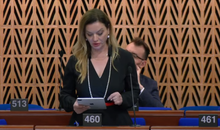

New Bureau Director
2025-06-23 17:40:36
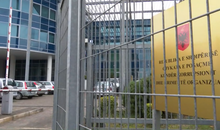

Rutte: US attacks on Iran 'did not violate international law'
2025-06-23 16:57:06


War/ Germany takes precautions in case of retaliation from Iran
2025-06-23 16:20:28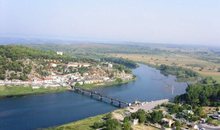
A 70-year-old man is found dead in the Buna River
2025-06-23 16:07:35

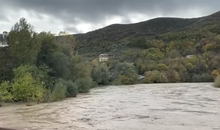
A dead body is found in the Shkumbin River
2025-06-23 15:21:50



Accident in Prrenjas, car hits and kills pedestrian
2025-06-23 14:20:12
Salianji requests conditional release, here's when the decision will be made
2025-06-23 14:03:10
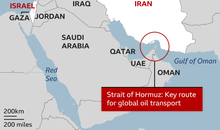
What is the Strait of Hormuz and what happens if Iran blocks it?
2025-06-23 13:28:25


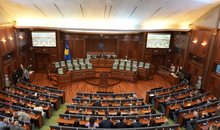
The 36th attempt fails, Kosovo still without a new Parliament
2025-06-23 12:17:11
Recount/ Dogjani clashes with Ilir Rusmal: Steal votes, with what right?
2025-06-23 11:59:50

US asks China to stop Iran from closing Strait of Hormuz
2025-06-23 11:10:34

Trump talks about possible regime change in Iran after US bombings
2025-06-23 10:35:46
Presented at SPAK Majlinda Bufi
2025-06-23 10:18:30
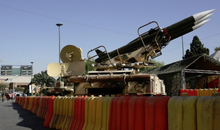
Iranian generals threaten US with 'decisive response'
2025-06-23 09:46:00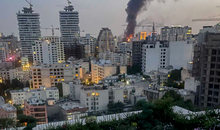
4 more Albanians evacuated from Israel
2025-06-23 09:31:11
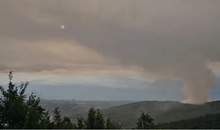
Fire at the waste landfill in Kukës, plumes of smoke spread towards the city
2025-06-23 08:52:12
Why have some of Tehran's key allies stayed out of the Israel-Iran conflict?
2025-06-23 08:34:20
Sterilization PPP nears closure, real cost 53% more than contract
2025-06-23 08:19:00
Gunshot wound in Shkodra, perpetrator flees
2025-06-23 08:04:44
Horoskopi, çfarë kanë rezezervuar yjet për ju sot
2025-06-23 07:50:28
Temperatures up to 36 degrees, weather forecast for today
2025-06-23 07:40:11
Morning Post/ In 2 lines: What mattered yesterday in Albania
2025-06-23 07:22:30
Krim brenda familjes në Greqi, 61-vjeçari vret prindërit e tij të moshuar
2025-06-22 21:57:48
US airstrikes/ Iran warns: The game is not over!
2025-06-22 21:29:22


The US is involved in the war, why did Trump take the risk of attacking Iran?
2025-06-22 20:28:22
Israel-Iran conflict increases global tensions: Is the Albanian economy at risk?
2025-06-22 20:02:04
The US bombed Iran/ Rama: I support Trump's sincere efforts!
2025-06-22 19:40:21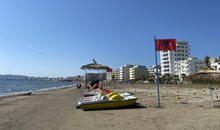
Bosnian tourist drowns in Durres
2025-06-22 19:05:48

The 10 strongest criticisms of the PACE report on the May 11 elections!
2025-06-22 18:41:21


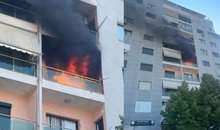
An apartment in Yzberisht is engulfed in flames
2025-06-22 17:32:13
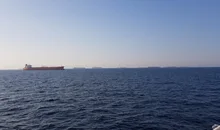

Rinderpest/ The number of outbreaks rises to 10, here are the affected districts
2025-06-22 16:25:12


"Trump has opened Pandora's box"
2025-06-22 15:10:04

Pope Leo XIV: Stop the tragedy of war before it becomes an irreparable abyss
2025-06-22 14:24:22
Criminal group busted in Belgium, 10 Albanians among those arrested
2025-06-22 14:00:58
Cities race for tourists, Tirana cheapest, but busiest
2025-06-22 13:35:53
Kurti supports US strike: International security needs fewer nuclear weapons
2025-06-22 13:18:54
Selling drugs in the former Bllok, 23-year-old arrested
2025-06-22 12:57:58
Berisha supports US strike on Iran: Strong call for overthrow of dictatorship
2025-06-22 12:39:35
Starmer supports US attack on Iran, calls on Tehran to return to negotiations
2025-06-22 12:20:56
Sentenced to 8 years in prison in Italy, 33-year-old Albanian arrested
2025-06-22 11:54:45
Iran condemns US attack on nuclear facilities, warns of consequences
2025-06-22 11:34:21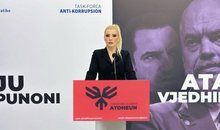


Albanian Railways is affected by collective staff cuts
2025-06-22 10:46:46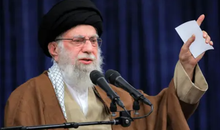
The US has changed the course of the conflict - how will Iran respond?
2025-06-22 10:24:26
Cannabis in drainage canals, 48-year-old arrested in Fier
2025-06-22 10:06:41
Albanians 'invade' New York, thousands march in the Red and Black parade
2025-06-22 09:44:26
Foreign exchange, the rate at which foreign currencies are sold and bought
2025-06-22 09:27:27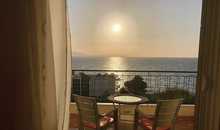
Is it worth buying an apartment to rent out?
2025-06-22 09:12:40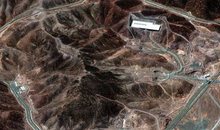
US bombs Iran, hits three Tehran nuclear sites
2025-06-22 08:53:08
Horoscope, what do the stars have in store for you today?
2025-06-22 08:35:50
Weather forecast/ How temperatures will change during the day
2025-06-22 08:20:43
Morning Post/ In 2 lines: What mattered yesterday in Albania
2025-06-22 08:00:29

Iranian President: We will not stop nuclear program
2025-06-21 21:46:32
Europe hit by first heat wave: Up to 40°C expected this weekend
2025-06-21 21:19:19
Borussia Dortmund claim first win in Club World Cup
2025-06-21 20:56:04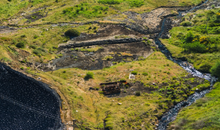

Accident on the Puka-Shkodra axis, two injured
2025-06-21 20:05:04

ChatGPT can damage your brain, here's what the study says
2025-06-21 19:20:25


Belarus opposition leader released after five years in prison
2025-06-21 18:22:57
Renowned journalist and teacher in Korça, Vehbi Furxhi, passes away
2025-06-21 18:06:16
Accident in Fier-Levan, two injured
2025-06-21 17:43:25
Tourism in traffic, when roads undo success
2025-06-21 17:25:31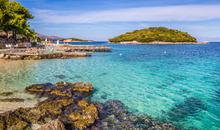

Broja on the verge of leaving Chelsea, 4 teams in talks for midfielder
2025-06-21 16:42:02
